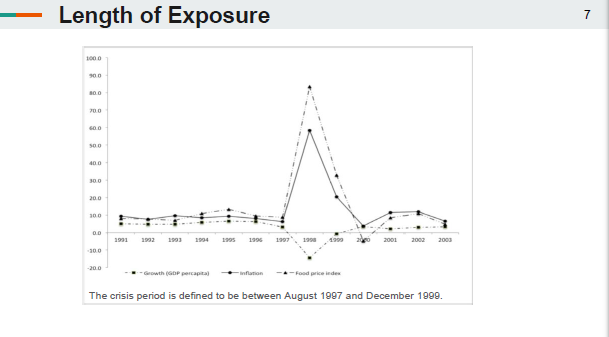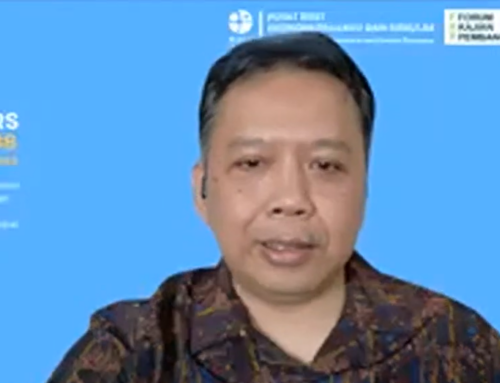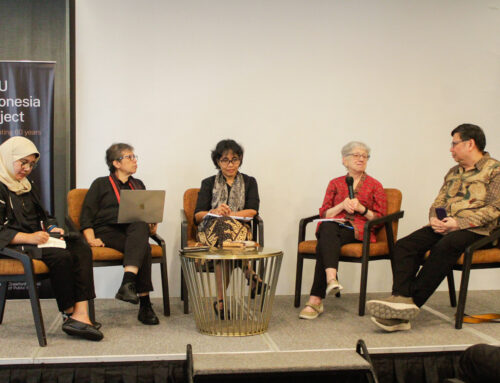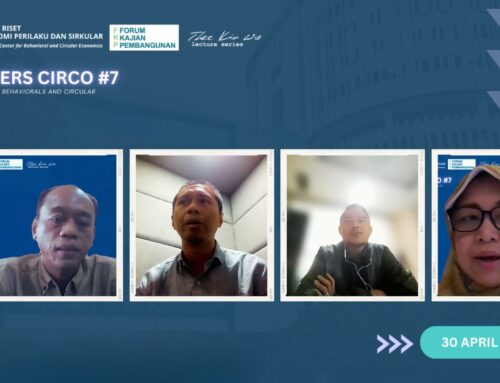On 14 August 2018, Kementerian Perencanaan Pembangunan Nasional/Badan Perencanaan Pembangunan Nasional (BAPPENAS) hosted the FKP Seminar in Jakarta. Milda Irhamni (J-PAL Southeast Asia) presented her doctoral thesis on the topic of cognitive development in Indonesia. Her research was motivated by the conflicting results of previous studies regarding to the impact of crisis on child health outcome. In the case of Indonesia, there have been limited sources about child cognitive development studies, specifically those that consider the impacst of crisis. Therefore, the study aimed to estimate the causal impact of the 1997 Asian Financial Crisis to Indonesia’s children cognitive development.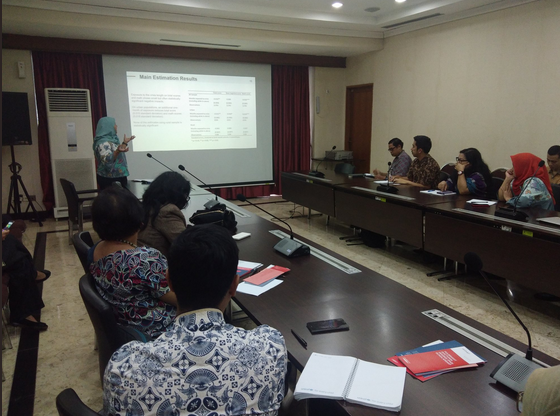
Milda Irhamni presented her research on cognitive development on children affected by economic crisis
In her study, Milda used the Indonesia Family Life Survey (IFLS) datasets for 2007 and 2014, she captured approximately 8,159 children that fits her criteria. She limited the sample to those who were age between 0 to 5 years old in 1997. Children’s cognitive skills were measured using 17 questions in the IFLS, consisting of 12 basic cognitive question and 5 basic math skills. The estimation is based on comparing cognitive skill difference between siblings in the same household with a different households that have the same sibling age gap.
The study found that the largest impact of the crisis were when children in urban areas are exposed to the crisis in utero (while in the womb). In the rural areas, however, children in non-farming rural households are the ones bearing the negative impacts of the crisis.
For the complete presentation and Q&A session, please refer to the videos and materials provided.
